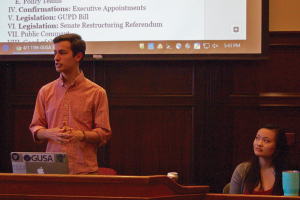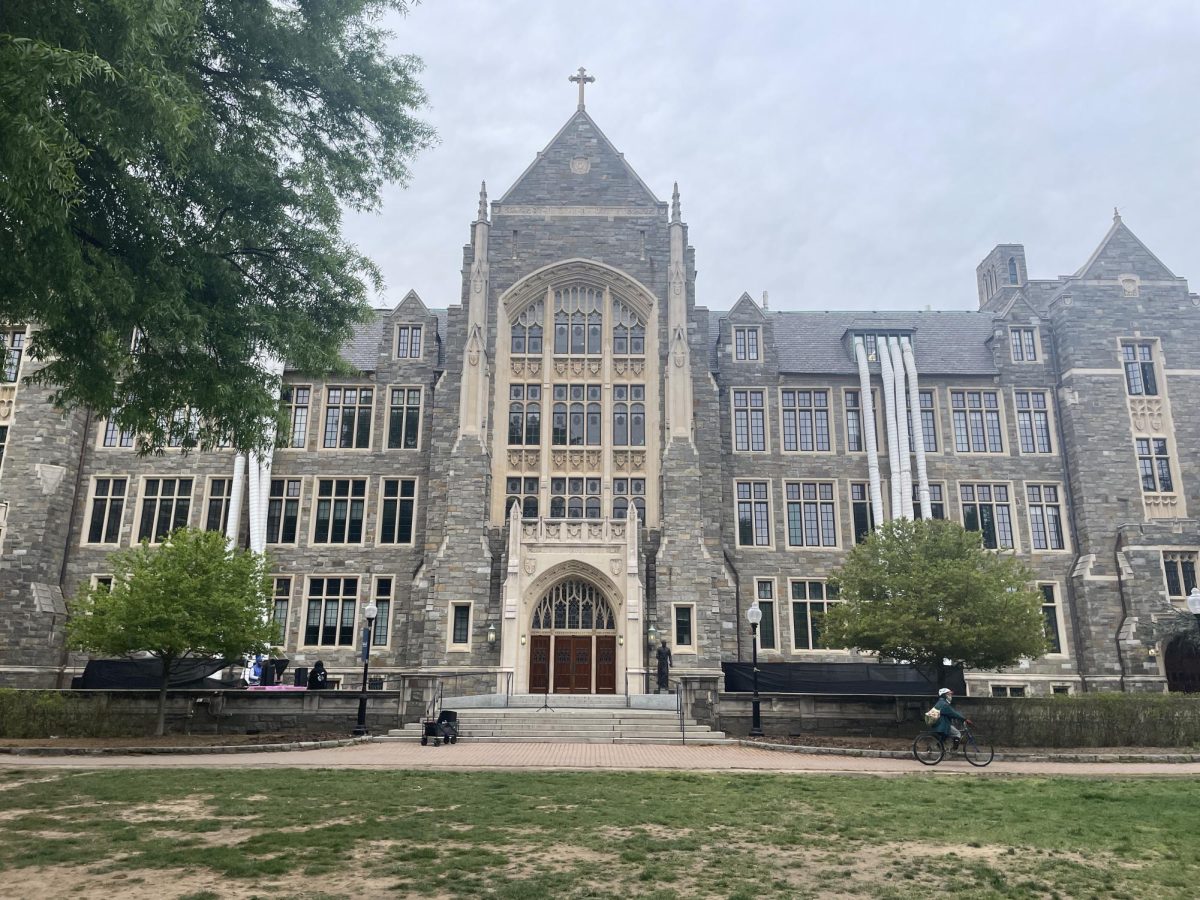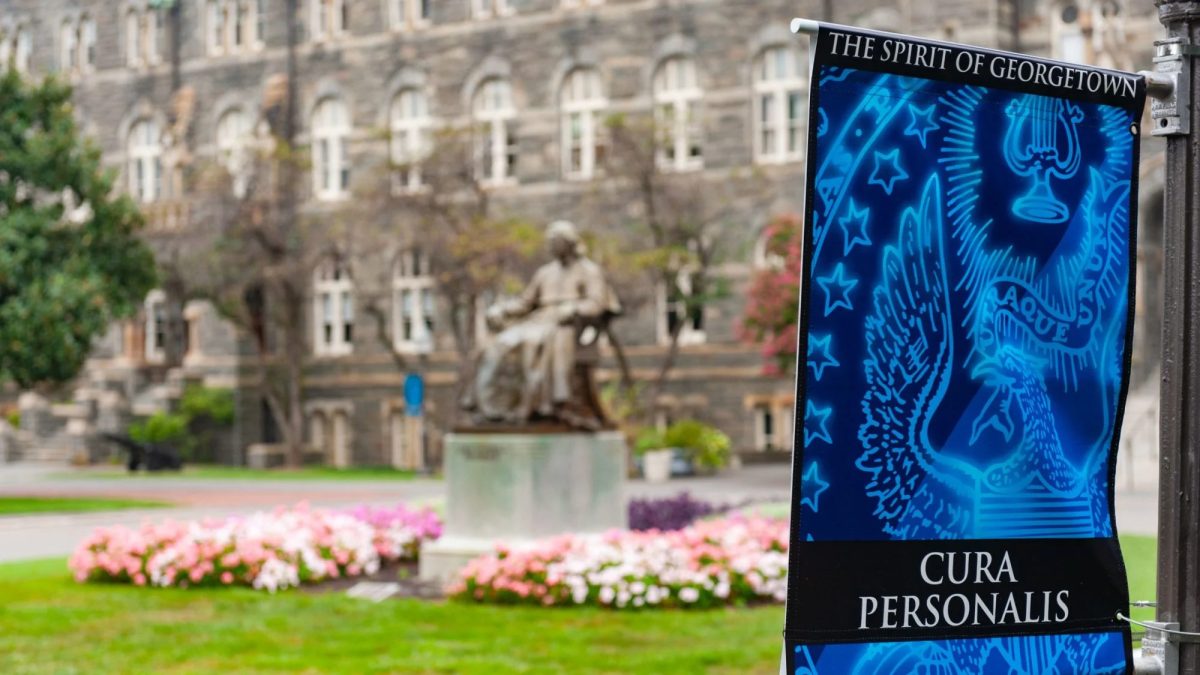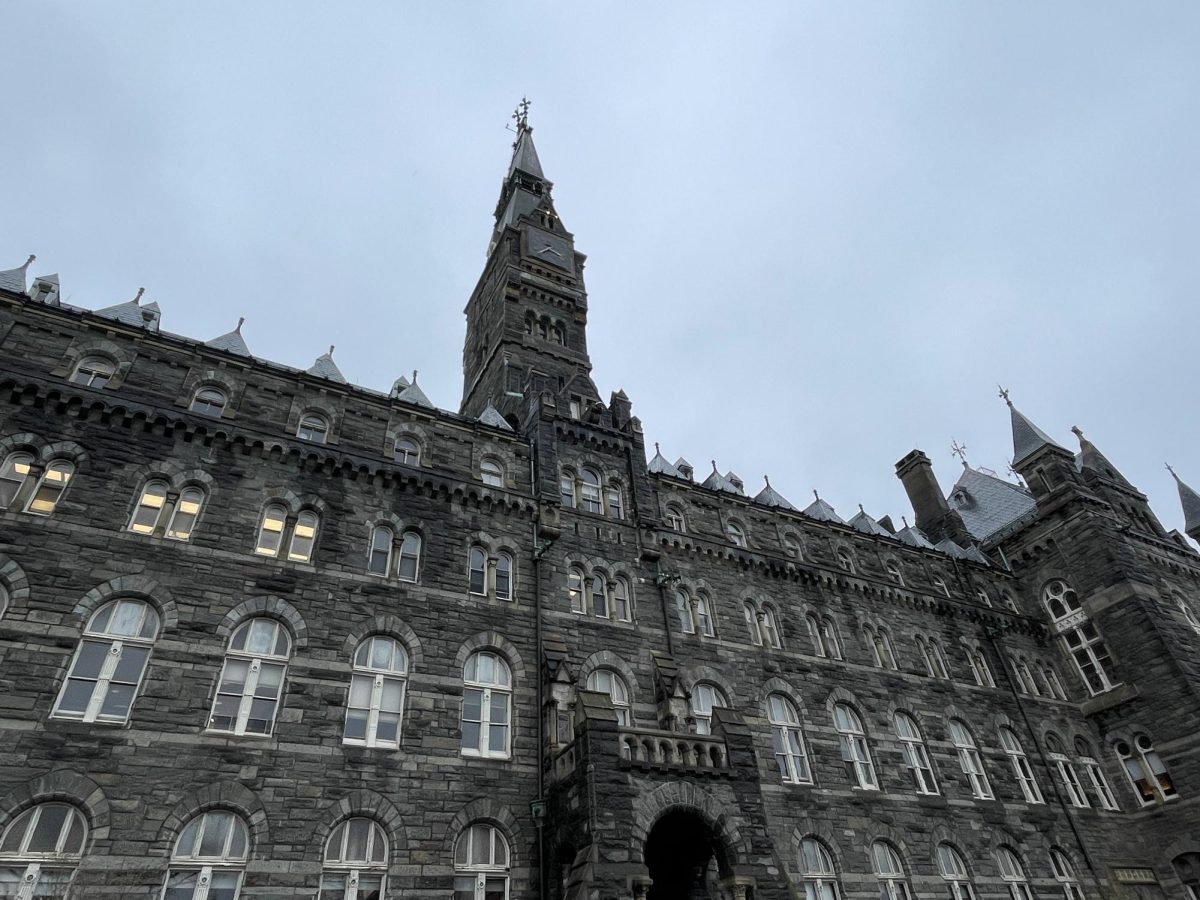
GUSA senate speaker Richie Mullaney (COL ’18), left, and senate vice speaker Cherie Vu (COL ’19) led the Senate vote Sunday on a referendum to restructure the senate,
Students are set to vote on a campuswide referendum later this month to elect Georgetown University Student Association senators by class rather than geographic district.
The bill aims to encourage students from underrepresented communities to participate in GUSA, and also updates the student government’s bylaws to prevent exclusion based on discriminatory factors. Proponents of the referendum argue that the changes will make the senate more representative of the student body.
The senate voted unanimously in favor of the referendum Sunday. The session was briefly thrown off course after Deputy Chief of Staff of Health and Wellness Will Emery (COL ’19), who represented the GUSA executive, appeared to suggest the administration was taking a last-minute stance against the referendum.
“After talking to more people, specifically from [Leaders in Education About Diversity] and the [Center for Multicultural Equity & Access], we realized that class year districts would make it more difficult to earn a senate seat, thereby having the potential to decrease diversity,” Emery told the senators, reading from the statement.
Emery added, “Therefore, we cannot support the referendum.”
The final comment was not approved by GUSA President Kamar Mack (COL ’19) and Vice President Jessica Andino (COL ’18). The senate interpreted Emery’s comments as a sudden policy reversal by the executive, which had not previously expressed opposition to the referendum.
Senator Scott Lowder (COL ’17) said the apparent policy change amounted to an insult to the senate lobbed by the executive.
Executive press secretary Aaron Bennett (COL ’19) said the comment was not authorized and the executive would like to continue discussing the referendum. Bennett and Mack were not aware Emery had added the comment at the Sunday meeting when interviewed by The Hoya last night.
“The Executive supports the idea of opening important questions such as this to the student body, but has heard concerns about diversity under this new plan and we would like to hear more open debate/discussion on ways to ensure minority representation in the Senate,” Bennett wrote in an email to The Hoya.
The current senate has 29 senators representing eight geographic districts. If passed, the April 25-27 referendum would allocate 24 seats by class year: six seats for freshman, five seats each for sophomores, juniors and seniors, and three at-large seats open to students from the upper three classes. The referendum requires support from 25 percent of the student body with a two-thirds margin to take effect.
If the referendum passes, senate elections – excluding those for freshmen and at-large senators – would be held in the spring rather than the fall. The referendum also proposes codifying existing GUSA diversity programs, including ElectHer, which seeks to recruit female students for elected positions, and A GUSA That Looks Like Georgetown, which seeks to encourage students from underrepresented populations to run for elected positions.
An additional question on the referendum would update the GUSA bylaws on inclusivity, banning a student’s exclusion from the association on the basis of citizenship status, gender identity or expression, ability or disability or any other characteristics covered by federal or Washington, D.C. law. Voters can vote for the two questions independently and can choose to answer only one.
Lowder said he was pleased to learn the executive did not intend to oppose the referendum outright, but said the miscommunication creates a larger concern about the relationship between the senate and the executive.
“When we have a representative in the senate, we rely on them to speak for the executive, especially concerning something as huge as a constitutional amendment,” Lowder said in an interview with The Hoya. “So the idea that what was said on behalf of the executive in a meeting about amending the entire constitution of GUSA, the idea that that was not accurate, is very concerning to me.”
GUSA senate speaker Richie Mullaney (COL ’18) said the shift to class-year representation are more effective and representative than geographic representation for the senate.
“In my opinion, the Senate’s geographic district system is an example of GUSA taking itself too seriously. While geographic districts might work for the real government, they don’t provide the same benefits for a student association,” Mullaney wrote in an email to The Hoya. “Students have a much stronger connection to their class year than the part of campus they live in year to year.”



















jane hoya • Apr 5, 2017 at 10:18 pm
Why aren’t senators elected by school or college instead of class year or geographic district? I would think that we all associate with our schools more than we do class years…right? As an SFS student I feel that I should be advocating more for my school more than anything. I know my school has different needs than my NHS friends.